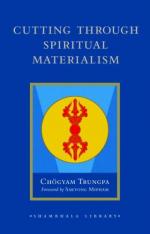|
This section contains 5,471 words (approx. 19 pages at 300 words per page) |

|
"Physicotheology" is the aspect of natural theology that seeks to prove the existence and attributes of God from the evidence of purpose and design in the physical universe. The argument is very ancient, but it is from the Greeks that its medieval and modern forms principally spring. Socrates revolted against the materialist tendencies of earlier philosophers, and his pupil Plato sought to show that the order and harmony exhibited in the world sprang from the action of mind. Plato argued that since matter cannot move itself, motion is evidence of the presence of mind in nature. All the activity and change in the world have their origin in a supreme mind that moves itself and creates subordinate souls or gods, the heavenly bodies. The outer sphere of the universe is set in motion by the direct action of the changeless, transcendent God. Aristotle expounded more emphatically a teleological...
|
This section contains 5,471 words (approx. 19 pages at 300 words per page) |

|


